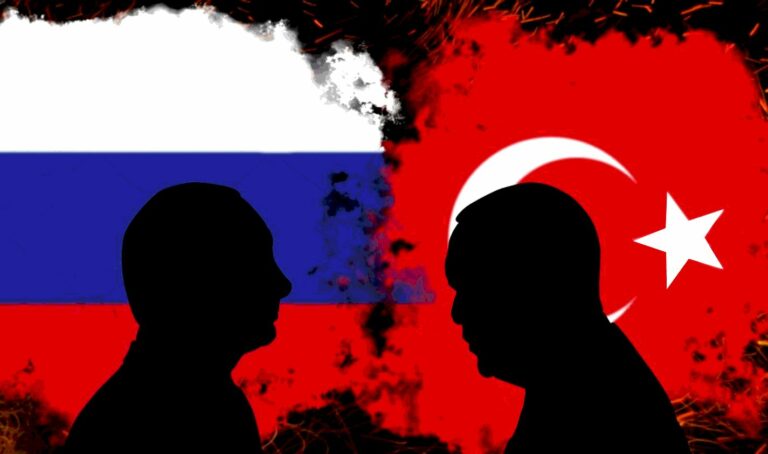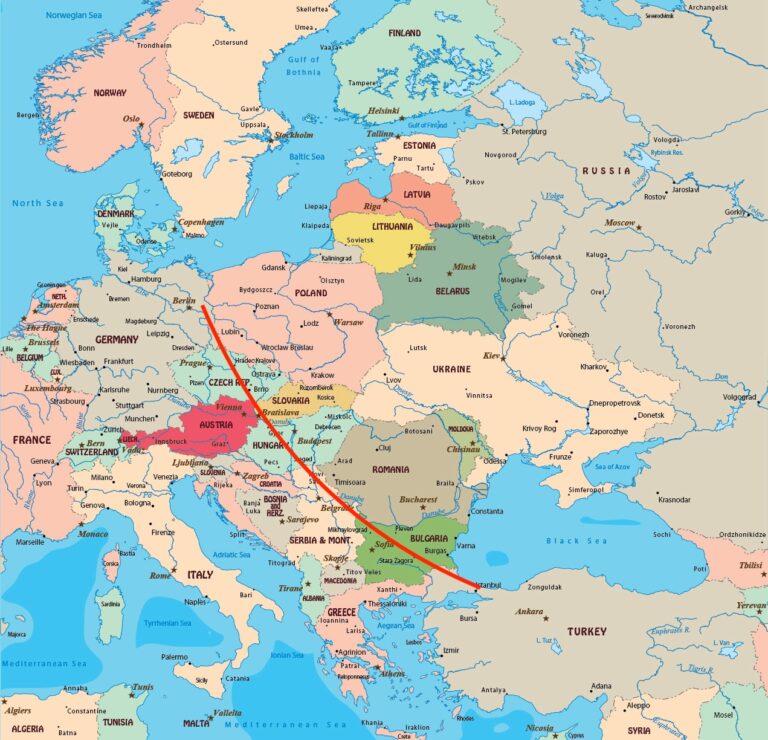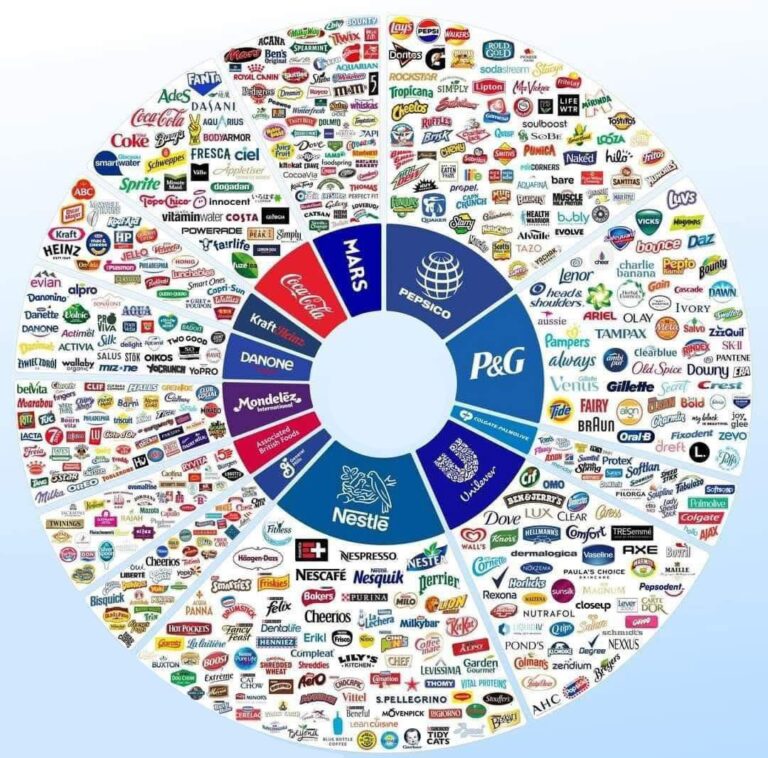by Andrea Tucci,
The latest news from Syria concerns the advance of the “rebels” Heyet Tahrir al-Sham (HTS) and the National Front for Liberation (NFL) where they reportedly control Aleppo city . The airport has been closed, while the rebels have opened the prisons, releasing all detainees. The attackers, catching the army off guard, are exerting increasing pressure. Civilians on social media have reported the retreat of government forces from Az-Zamiya. The Syrian army still holds control over the al-Furqan area, but with difficulty and amid heavy fighting.
Among the groups forming the Free Syrian Army is the Sunni Islamist militant group Jaish al-Izza, whose leader, Mustafa Abdul Jaber and certainly their rapid advance was facilitated by the absence of Hezbollah support, which has suffered significant setbacks from Israeli strikes. Meanwhile, Syrian President Bashar al-Assad has flown to Moscow to assess the situation with the Russian ally.
The offensive is primarily led by the neo-al-Qaeda group Hayat Tahrir al-Sham (HTS), which emerged in 2017 from the merger of Jabhat Fattah al-Sham (formerly the al-Nusra Front, linked to al-Qaeda) together with other smaller jihadist groups.
Syria is once again at the center of a seemingly endless conflict, with the Idlib and Aleppo regions turning into open battlegrounds. However, the intensity of ground clashes it’s also concern to the delicate relationship between two major external players, Turkey and Russia. For years, these powers have been navigating a complex game in Syria, balancing conflicting interests with strategic cooperation often driven by tactical necessities.
Turkey’s primary goals include protecting the Turkmen populations and preventing links between Turkish and Syrian Kurds. Meanwhile, Russia has maintained important air and naval bases in the country since the Soviet era, notably in Latakia and Tartus.
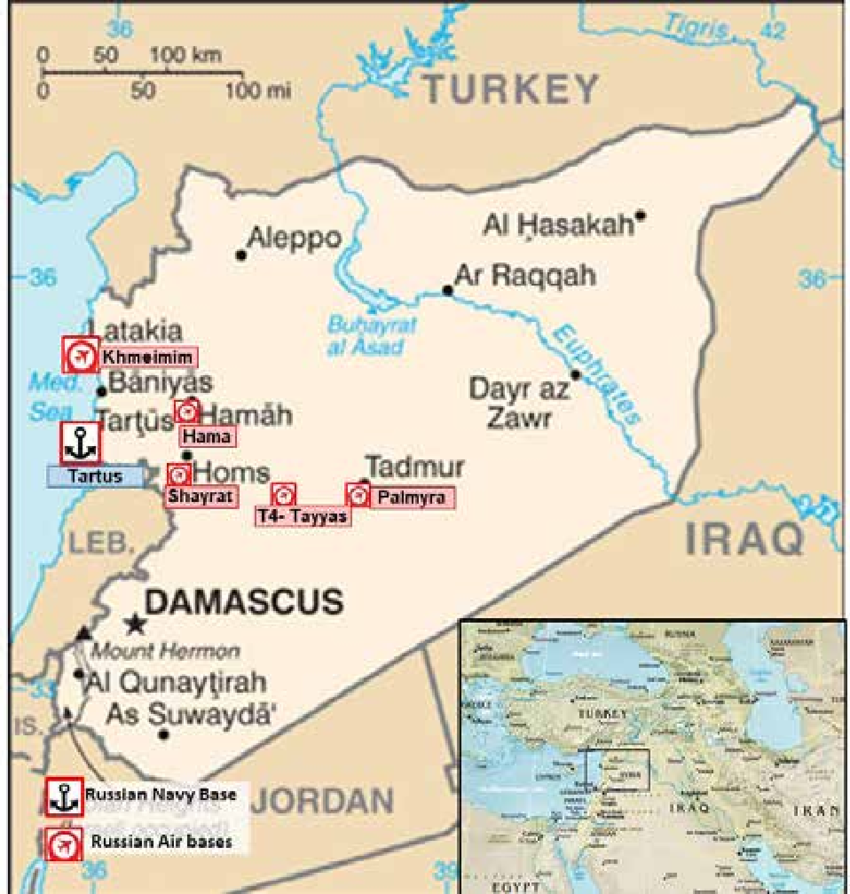
Photo: Russian Navy and Air bases
Through the Syrian National Army (SNA) and rebel groups it supports, Ankara appears determined to assert its influence in northern Syria. Its stated objective is the restoration of the de-escalation zone borders agreed upon in 2017 and 2019, which have shrunk due to Moscow and Damascus’s offensives. However, this narrative conceals a broader political strategy.
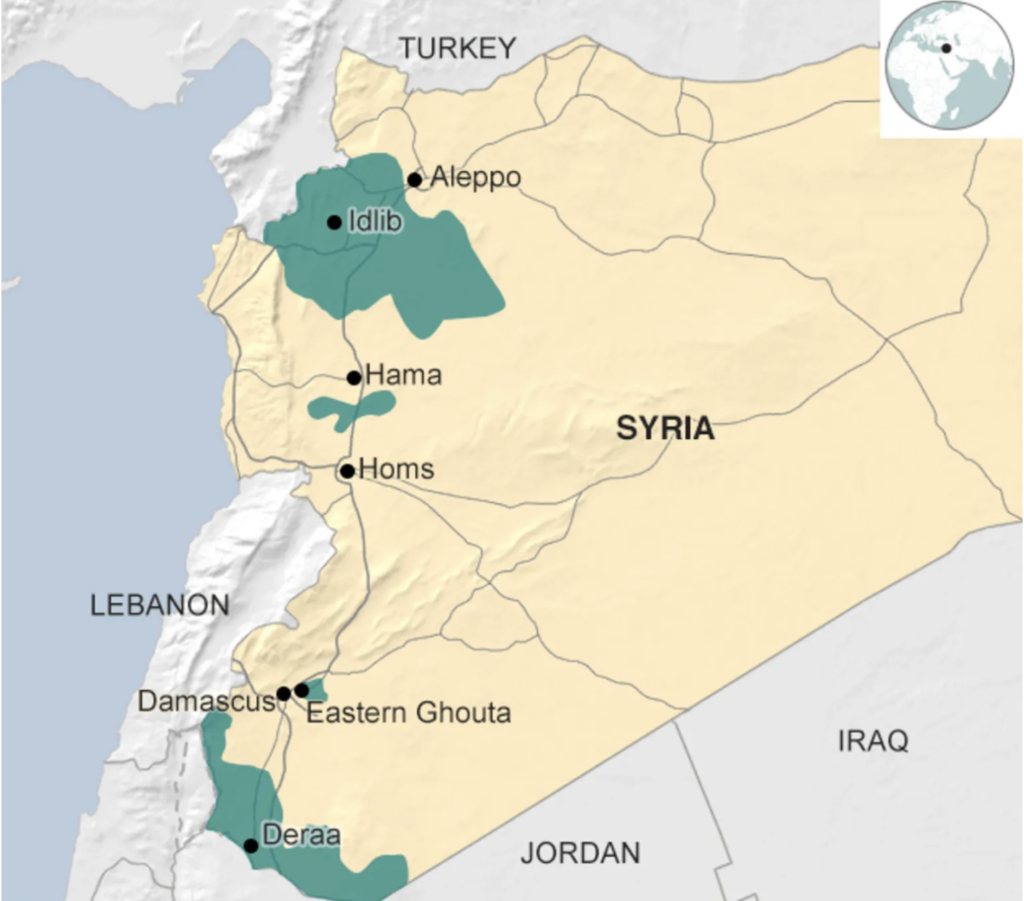
Photo: In green de-escalation zones
Turkey seeks to use the military crisis as leverage to push the Syrian government into reopening dialogue on normalizing bilateral relations. Additionally, President Erdogan plans to repatriate at least one million Syrian refugees a key issue for his domestic support.
But Turkey’s support for rebel groups extends beyond internal concerns. According to a field source the foreign fighters have entered Syria via the Turkish border, showing how Ankara uses its allies on the ground to maintain pressure on Damascus and, indirectly, Moscow.
On the other hand, Russia cannot afford to lose ground in Syria. Moscow’s 2015 military intervention secured Bashar al-Assad’s regime and transformed Syria into a strategic base for projecting influence in the eastern Mediterranean. In recent hours, the joint Russian-Syrian air force has intensified raids, with the Russian Reconciliation Center claiming the deaths of at least 400 militants. However, Russia finds itself in a delicate position. It must support Damascus to solidify territorial and political gains while avoiding To strain relations with Ankara, with which it has fostered strategic ties over the last decade.
Examples of this fragile yet vital relationship include Russia’s sale of S-400 defense systems to Turkey, collaboration on the TurkStream gas pipeline, the construction of a nuclear power plant awarded to Rosatom, and mediation in regional conflicts.
Meanwhile, the civilian population bears the heaviest burden. Tens of thousands of families remain displaced, trapped in a war with no apparent end. The Idlib de-escalation zone, once a symbol of potential peace, has become yet another illusion of respite.
The Syrian crisis highlights the ambiguity of this relationship. Despite being on opposing sides in Syria, Turkey and Russia continue to cooperate on other geopolitical fronts.
The key question is how far the two countries are willing to tolerate each other’s actions before competition escalates into direct confrontation?

